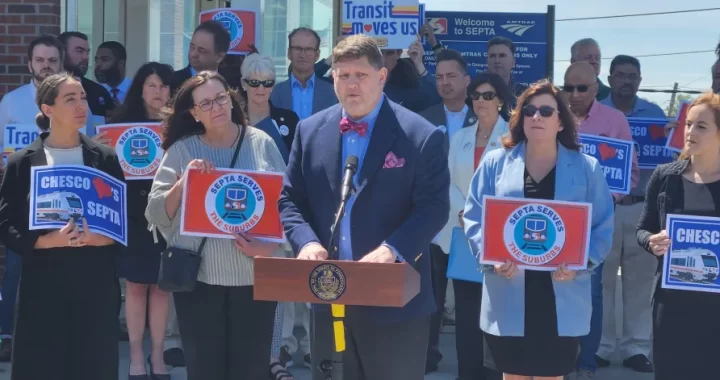By: Tim Phelps, TMACC
In Pennsylvania, public transportation is too often treated as a line item to be trimmed when budgets get tight or pushed to the final debate. But cutting or sidelining transit funding isn’t just a bad economic decision, it threatens public safety, limits access to jobs and puts the future of our state’s economy at risk.
Reliable, safe public transit is a lifeline. It connects people to work, school, health care, and child care. It reduces traffic congestion, protects the environment and is essential to building stronger, safer communities. As the Brookings Institution notes, “The path to public safety requires economic opportunity.” Transit is one of the most effective ways to extend opportunity to every corner of the commonwealth.
When people can’t reach jobs, training, or essential services, they can’t move up in life. In areas without strong transit, job growth stalls and poverty deepens. For Pennsylvanians who don’t own a car, young people, older adults, people with disabilities and members of working families, public transportation is not optional. It is essential.
This is especially true in southeastern Pennsylvania. In February alone, SEPTA supported more than 750,000 daily riders across its system. These are health care professionals, educational support staff, students, food service workers and retail employees — all a part of the backbone of our regional economy. More than 70% of SEPTA riders rely on it to get to work, and the system connects people to major job centers like Great Valley, King of Prussia and University City.
According to Econsult Solutions, SEPTA contributes more than $3.76 billion annually to the region’s economy. But without stable, long-term funding, it faces a death spiral of service cuts, fare hikes and declining ridership. That would devastate not just Philadelphia, it would ripple across the entire commonwealth. Southeastern Pennsylvania drives more than 40% of the state’s economic activity. When SEPTA struggles, Pennsylvania struggles.
If we want to grow our tax base, we must invest in the systems that connect people to work, not just raise tax rates. Business growth depends on workforce access. Strong public transit gives employers the talent pipeline they need to compete and thrive.
Transit also strengthens public safety. Brookings makes it clear: safer communities are those with better access to jobs, education, housing, and healthcare. Public transportation delivers those connections. The stronger the system, the more resilient and hopeful the community.
Public transit isn’t just good policy, it’s good business. It attracts investment. It keeps towns competitive. It reduces congestion, improves air quality and offers affordable options for families who can’t or choose not to drive.
This isn’t a partisan issue. Transit helps Republicans, Democrats, and independents. It helps rural towns and major cities. It supports veterans, seniors, students and working families. It makes Pennsylvania more connected, more productive and more just.
The commonwealth has a choice: lead with vision or fall behind. Other states are investing in transit because they know it pays off. Now is the time for Pennsylvania to do the same.
Let’s invest like our future depends on it, because it does.
Photo Credit: Bill Rettew/MediaNews Group
